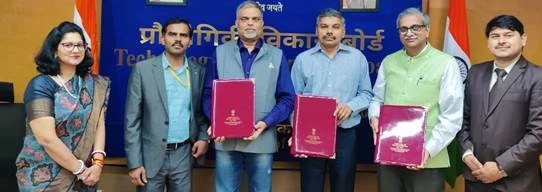The Technology Development Board (TDB) recently signed an agreement for project “ANAGRANINF – Development of a Novel Class of Antibiotics Against Gram-Negative Bacterial-Infections”.
About Project ANAGRANINF:
- It is a joint effort between Indian and Spanish companies along with Foundation for Neglected Disease Research (FNDR), Bengaluru.
- It is led by the Department of Science & Technology and the Centre for the Development of Technology and Innovation, E.P.E. (CDTI).
- Under the agreement, the Board has sanctioned a grant of ₹75 Lakhs towards the project, out of a total cost of ₹1.5 crores.
- It aims to drive market-driven research and technology development while fostering partnerships and business-led collaborative projects for innovation in healthcare.
- The project’s primary objective is to develop a novel lead compound, particularly an antibiotic, adept at inhibiting the FabI enzyme and combat gram-negative pathogens.
- Gram-negative Bacteria are prokaryotic organisms that do not retain the crystal violet stain used in the Gram-staining method of bacterial differentiation.
- This would be done by harnessing the power of proprietary AI tools and adhering to stringent guidelines such as the entry rules.
- The project aims to produce compounds with enhanced efficacy and align with the criteria laid out by World Health Organization (WHO) for tackling Antimicrobial Resistance (AMR).
- The selected hit molecule MMV1578564 has exhibited promising activity against gram-negative pathogens.
- The molecule should have a new chemical structure, no cross-resistance with existing commercial classes, a novel target, and a novel mechanism of action.
About Technology Development Board (TDB):
- It is a statutory body established in 1996 under the Technology Development Board Act, 1995.
- The purpose is to promote and commercialize indigenous technology and adapt imported technology for broader application.
- TDB is the first government organization dedicated to commercializing the fruits of indigenous research.
- It provides equity capital or loans to industrial concerns and financial assistance to R&D institutions, with loans bearing a simple interest rate of 5% per annum.
- This is through grants from the Government of India, primarily funded through cess collections under the Research and Development Cess Act, 1986.
- Collaborations– Global Innovation & Technology Alliance (GITA) was established along with the Confederation of Indian Industry (CII), to stimulate private sector investment in R&D.
Ref:Source
| UPSC IAS Preparation Resources | |
| Current Affairs Analysis | Topperspedia |
| GS Shots | Simply Explained |
| Daily Flash Cards | Daily Quiz |



